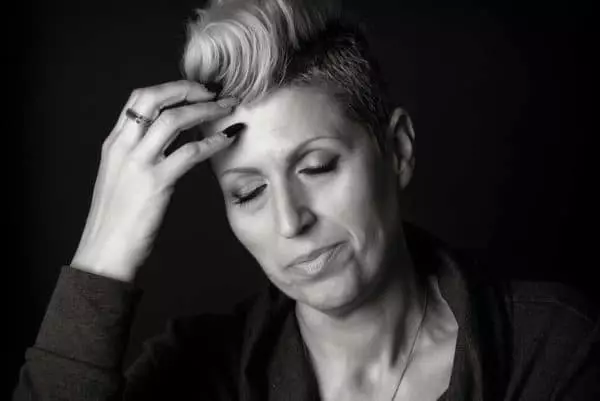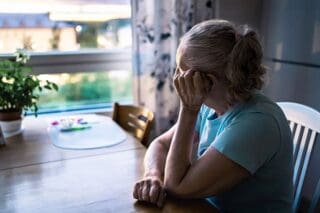
I learned early on in my cancer treatment what a cruel, unfair thing cancer can be. It doesn’t care who you are, how old you are, or how much money you do or don’t have. Cancer has one purpose, to destroy the host, no matter who that host is – and many times, it succeeds.
I met Bill and Gloria in new patient orientation at Brigham and Women’s Hospital. Our age difference of 40 years didn’t matter: We both had the same diagnosis, pleural mesothelioma, and we were in Boston for what we had hoped was an answer to our search for an effective treatment of this disease.
We talked more with them in the waiting room as we waited our turns to see Dr. Sugarbaker. During that time we learned they were staying in a hotel quite far away because of cost, so we told them about the place we had found, close by, and very reasonable. It was a large guesthouse, with private rooms, a shared common area, and a shared kitchen where we were able to cook meals instead of going out to eat. We were on a very tight budget, so this worked well for us, as we had to be in Boston at least a week for the first round of appointments and medical tests.
Bill and Gloria called, got a room near ours, and we spent much of the next week together in the evenings talking and getting to know one another. We promised to keep in touch and found out our surgery dates a couple of weeks apart. I was still recovering in the hospital when his surgery was scheduled.
The Guilt of Surviving When Others Don’t
I got the news from a mutual friend. Bill didn’t make it out of surgery. His heart simply could not take the stress of the operation, and it gave out on the table. Gloria and her family left the hospital that night and returned home to Maine without their husband, father, and grandfather.
I’ll never forget the feeling. The guilt. “Survivor’s guilt” they call it. It’s a very common emotion in the cancer community, as well as in other traumatic instances. I cried so hard the day Bill died. I cried for Gloria, and for the loss of a friend. It took some time to come to terms with it.
This is the world of mesothelioma. Being involved and working with other patients, the reality is many mesothelioma patients don’t live past 24 months. Survivor’s guilt is alive and well in many of us, especially the long-term survivors.
Every passing in the meso community hits us as if it were family. We take it personally. Every setback, every reoccurrence, every complication, we feel it. We all wonder if we are next, and at the same time hope we won’t be.
The guilt is always there. I think, “That could be me” or “Why did I not have the setbacks others have had?” I have found myself downplaying what I went through, so I don’t make other people feel bad. Even though I fought the same disease and had aggressive treatment. I wonder many times why it worked for me, but not for others.
Focus on Recovery Instead of Guilt
I try not to let the survivor’s guilt take over. It’s taken years to realize that everyone has a different path with this disease and every individual case is different.This is what I tell myself anyway, and sometimes it helps ease the pain of the loss.
These last couple of weeks have been particularly tough: Four mesothelioma patients who I knew passed away. One was just 37 years old.
I know that this disease is unrelenting and treatments vary across the world, but it doesn’t lessen the impact of the loss. One thing that always has been impressed on me is the unwavering support of the families who lost their loved one. So many of them have told me to keep fighting, to keep making a difference, and continue to be the voice for those no longer able to speak. And they thank me for all I do, when I feel as though I haven’t done enough.
There is another side to survivor’s guilt that few people talk about. Maybe guilt is the wrong word, but it’s the feeling that we should be doing better, doing more, and basically be farther along in our recovery than we are.
Every person I talk to asks the exact same thing: “How long until things return to normal?” There is no normal anymore. Normal went out the window the minute your world was turned upside down by a cancer diagnosis. Nothing will ever be the same again.
We want so much for things to be normal again that we often force ourselves to do things that sometimes can harm us. Sometimes pushing yourself is good, but you have to learn to listen to your body and rest when you need rest. Comparing your recovery to anyone else, just sets you up for failure. You will recover at the pace your body recovers.
Yes, there are things you can do to help it along, like taking a couple 20-minute walks a day, eating well after treatment, taking your vitamins, getting plenty of sleep. These are all good things and good advice for anyone, and they should be taken to heart even more while in recovery or treatment.
The main thing is to not be so hard on yourself. Your body has been through so much. Give it a chance to heal and recover. And stop feeling guilty that you aren’t further along or that you should be feeling better by now. It will happen in its own time.
Turning Survivor’s Guilt into Action
This is how I deal with the survivor’s guilt. I’ve never been one to ask why I, myself got sick, but rather why NOT me? I was determined from the beginning to make a difference, no matter what the future held.
From that first loss, and through each additional one in the last 10 years, I’ve strengthened my resolve to make people aware of mesothelioma, to prove to people it’s not about the commercials on TV. It’s about the people, the amazing, brave, people who find themselves being handed a mesothelioma diagnosis.
The mesothelioma community is small, and we count on one another to help each other get through. I am proud to be someone that people can count on, and happy to help every person in need in any way I can. That is how I deal with it, is by giving back to the community that has given me so much.
The other thing that has helped me deal with all the emotions of long-term survivorship has been a good therapist. She has helped me sort through all the feelings that come to the surface at different times.
The advice that I took to heart, and that has helped me the most, is to give the emotions their time. Recognize them for what they are, and don’t bury them. When you bury them or try to ignore them, it’s as if they grow in dark and get worse, and then they seem so much bigger than they are. When I deal with the emotions that come with the loss, I find that the guilt is greatly diminished.
I also try and be gentle with myself and allow myself time to mourn. Every time the process is different but emotions are the same. It’s something I continue to work on and evolve, and sometimes you just need to scream and let it all out, whatever works for you, do it!
One thing is for certain: I’m not about to let survivor’s guilt get in the way of helping people. That is what I’m meant to do!



